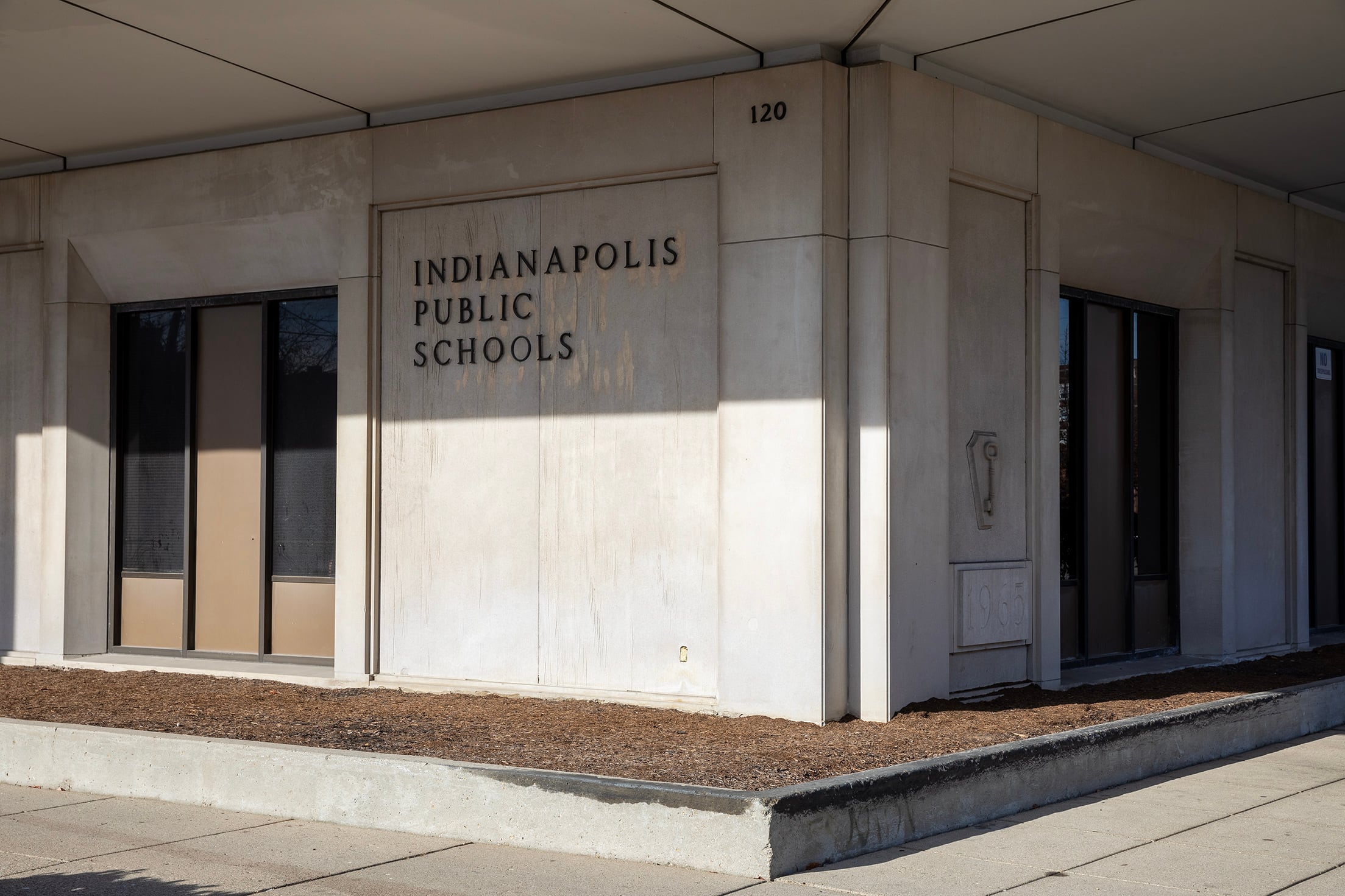Sign up for Chalkbeat Indiana’s free daily newsletter to keep up with Indianapolis Public Schools, Marion County’s township districts, and statewide education news.
The Indianapolis Public Schools board adopted a resolution Thursday reaffirming its commitment to working with schools of all kinds, including charters, to improve student performance and support racial equity.
The resolution passed 7-0 after a half hour of debate and public comment. The board debated the resolution at a meeting last month, and the extent to which there is — and should be — tension between different school models is a longstanding issue in the city.
Still, commissioners expressed mixed feelings about whether the community at large genuinely desires charter models, or if pro-charter groups have skewed the conversation.
“I can have a conversation with a parent and ask them direct questions about what they want,” IPS Commissioner Nicole Carey said. “And they’ll say one thing, and then they’ll come here, and they’ll say something completely opposite.”
Charter supporters and skeptics have demanded solutions for academic inequities across the district. For example, the ILEARN proficiency rate in 2023 for white students in traditional IPS schools was around 31 percentage points higher than for their Black peers, and 28 percentage points higher than for Hispanic students. Meanwhile, Black and Hispanic students in independent charters outperformed their peers in both traditional IPS schools and Innovation charters on the ILEARN last year.
Under Resolution 8020, the board acknowledged the need for “greater coherence, clarity, and collaboration” between traditional public, Innovation Network, and independent charter schools. Innovation schools officially belong to the IPS portfolio but largely have autonomy over their day-to-day operations. Twenty-four of the 30 Innovation schools during the 2023-24 school year were charters.
Three community members, all affiliated with the charter advocacy group Stand for Children, expressed support during Thursday’s public comment period for charter models and their desire for the resolution to contain stronger pro-charter language. They used previous calls to action for the district to replicate “data-proven models” to close the “opportunity gap.”
“I really want to make sure that this board understands the importance of serving kids that look like mine and partner with school models that work for students of color,” Stand for Children advocate and IPS parent Irma Perdomo said through an interpreter.
One traditional public school advocate spoke against the resolution. Christina Smith of the Indianapolis Education Justice Coalition pushed for IPS to focus on its Rebuilding Stronger plan — which is reconfiguring schools and revamping academic offerings — rather than seek out more charter collaboration.
“IPS needs to be focusing on schools that are already under the IPS umbrella,” Smith said. “The administration, educators, staff, students, and families, and honestly all of Indianapolis need a chance for the massive district overhaul that is Rebuilding Stronger to come to fruition.”
In the resolution, the board directed IPS administration to deliver action items starting with the upcoming school year, including:
- A public update by this August on Innovation Network partnerships and the application process for schools to join the network.
- A monthly report on efforts to ensure every student has the support they need to reach literacy.
- A quarterly update on the “climate and culture” of schools across the district.
Some commissioners and members of the public shared concerns about the resolution’s tight timeframe, including the August deadline to develop an application process to join the Innovation Network. (The resolution doesn’t include an exact date for that deadline.)
Superintendent Aleesia Johnson said the district will be responsive to feedback on the public updates and reports.
“When I think about what is perhaps produced in August, I think it does need to be informed by what we’ve heard from community and needs to continue to hear,” Johnson said. “I’m under no pretense that that will be a final product.”
Haley Miller is a summer reporting intern covering education in the Indianapolis area. Contact Haley at hmiller@chalkbeat.org.







